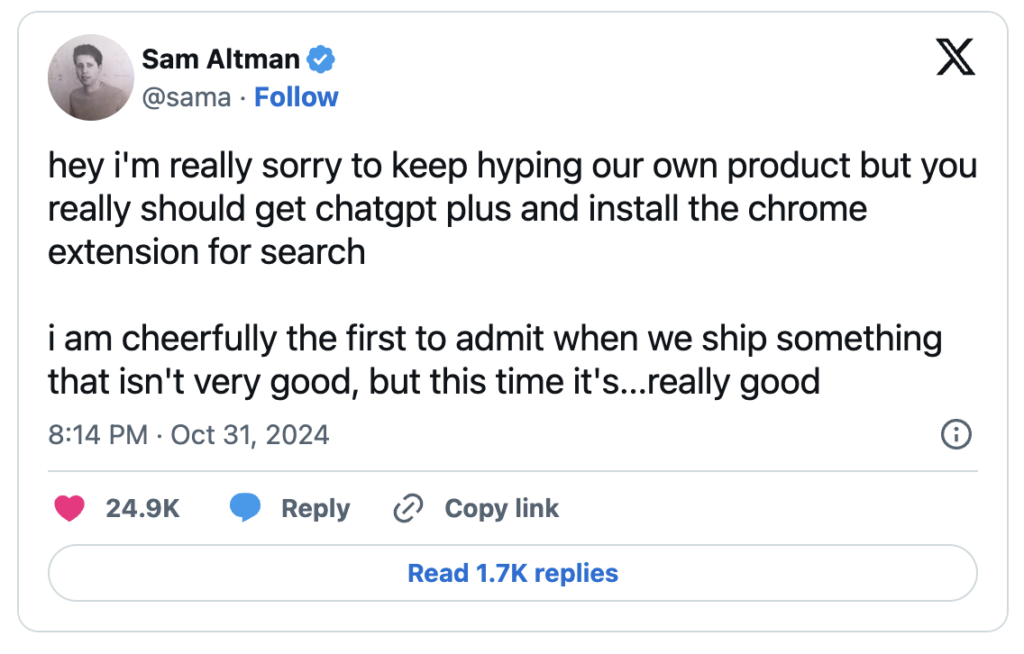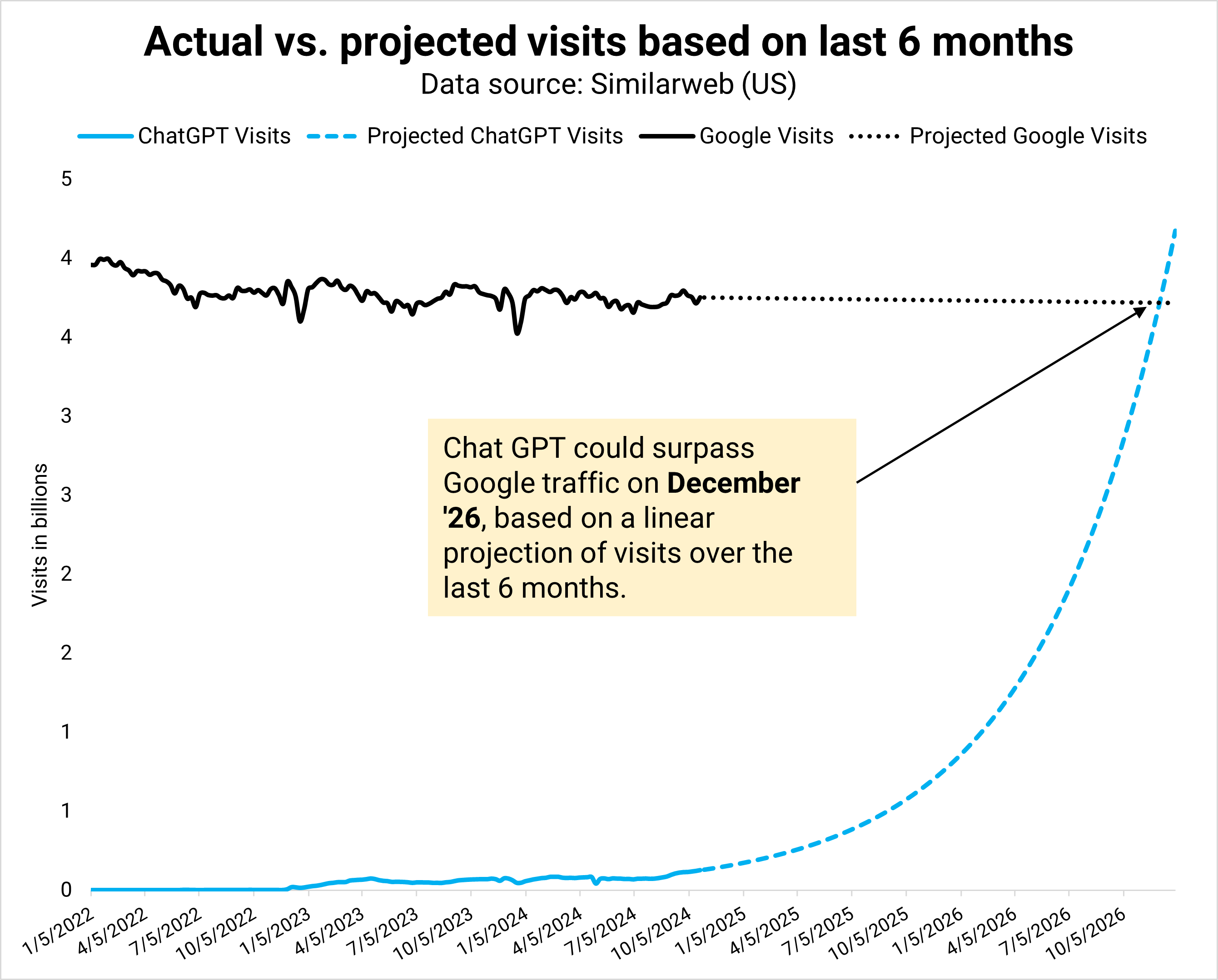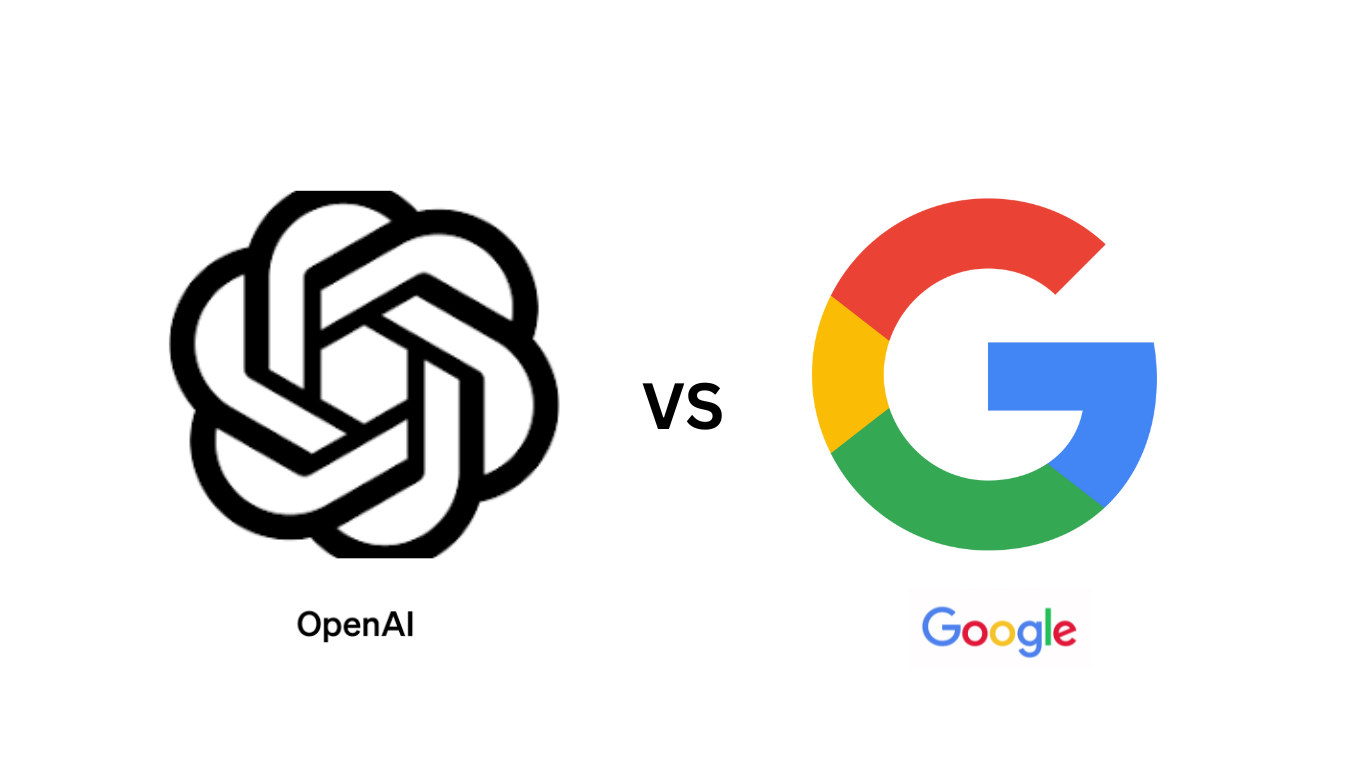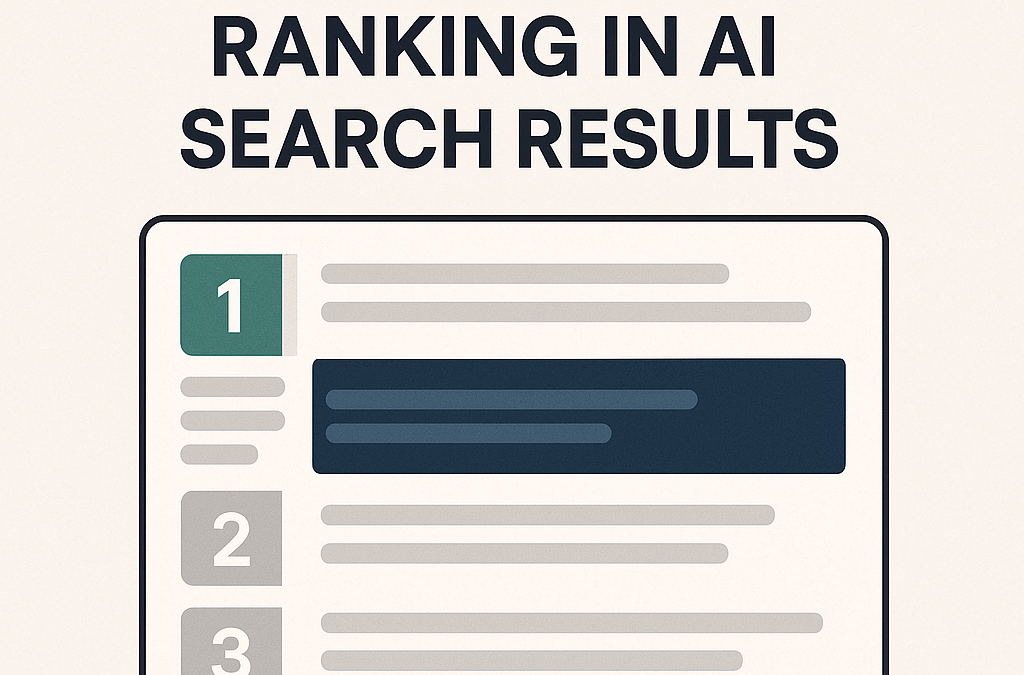Summary of Key Points
- Shift in Search Experience: OpenAI’s ChatGPT introduces a conversational AI alternative to Google, providing direct answers and dynamic interactions, shifting how people gather information.
- Apple Intelligence Integration: Apple’s ChatGPT integration in iOS 18 and macOS Sequoia boosts Siri’s capabilities, enabling AI-driven insights and analysis within Apple’s ecosystem, potentially challenging Google’s search dominance on Apple devices.
- Influence on Digital Marketing: ChatGPT is reshaping marketing by supporting content creation, customer support, and market research, allowing brands to connect with audiences through AI-driven engagement.
- SEO Implications: ChatGPT’s concise, intent-focused responses are influencing SEO, pushing marketers to optimize content for quality and relevance over keywords, adapting to the AI-driven search landscape.
- Future of AI vs. Traditional Search: ChatGPT offers a quick, conversational alternative to Google, though Google remains essential for verified, in-depth research. ChatGPT’s growth could impact Google’s dominance in search.
With OpenAI’s release of ChatGPT, the digital landscape has been experiencing a significant shift. ChatGPT’s role as a conversational AI tool brings a new way to search, gather information, and make decisions, creating an alternative to traditional search engines like Google. This article explores ChatGPT’s development, its impact on marketing and SEO, and its potential to rival Google.
The Evolution of AI: OpenAI and ChatGPT’s Role

OpenAI launched ChatGPT in 2022, sparking widespread interest in conversational AI. Built on OpenAI’s GPT-3 language model and subsequently enhanced by newer versions, ChatGPT can generate human-like responses based on user input, allowing for dynamic, engaging interactions. Unlike earlier AI models, which were limited in context and specificity, ChatGPT can hold conversations and respond contextually, enhancing its usefulness for a range of applications.
The Rise of AI in Everyday Life
Since its release, ChatGPT has influenced multiple sectors, including education, customer service, and marketing. The AI’s capacity to process complex information quickly makes it a valuable tool for business operations and personal tasks alike. Other models, like GPT-4, have continued to improve upon ChatGPT’s functionality, further expanding its potential applications.
Apple + ChatGPT: Match Made in Heaven?
Apple has launched Apple Intelligence, a feature integrating ChatGPT within iOS 18, iPadOS 18, and macOS Sequoia. This integration allows users to leverage ChatGPT’s expertise directly within Apple’s ecosystem, providing capabilities like document and image analysis without switching between applications. Siri can access ChatGPT’s knowledge when it would enhance responses, with user permission required before sending questions, documents, or photos to ChatGPT.
Additionally, Apple is incorporating ChatGPT into its Writing Tools, enabling users to generate content and images that align with what they’re writing. This move complements Apple’s expansive search relationship with Google, which currently dominates search on Apple devices, as 56% of U.S. search traffic comes through Safari, Siri, and Spotlight on Apple products. With ChatGPT’s search capabilities potentially available in API requests, Apple Intelligence could become a significant competitor, impacting Google’s reliance on its exclusive Apple search deal.
How ChatGPT is Shaping Digital Marketing
Marketing professionals are increasingly leveraging ChatGPT to reach audiences in new ways. AI’s ability to generate content, provide insights, and support customer interactions has made it a valuable tool for marketing campaigns. For instance:
- Content Creation: ChatGPT can produce blog posts, social media content, product descriptions, and more. This feature is especially useful for brands needing quick and consistent messaging.
- Customer Support: ChatGPT can respond to basic inquiries, freeing up human agents for more complex tasks. This has become a common strategy for companies aiming to enhance customer experience.
- Market Research: With its access to vast datasets, ChatGPT helps marketers analyze trends, track consumer sentiment, and forecast industry changes.
ChatGPT vs. Google: How the Search Experience Differs

Source: Search Engine Journal
As ChatGPT’s popularity grows, users are increasingly comparing it to Google for obtaining information. While Google remains dominant in traditional search, ChatGPT offers unique advantages:
- Conversational Experience: Unlike Google, which provides a list of links, ChatGPT gives direct answers in a conversational style. This can be especially beneficial for complex queries that require explanations.
- Faster Information Access: ChatGPT delivers precise responses without the need for filtering through pages of search results, making it ideal for straightforward or highly specific questions.
- Broader Context Understanding: ChatGPT can remember the context of previous questions, allowing for more nuanced and coherent discussions, unlike Google’s search format.
Despite these advantages, Google excels in providing authoritative information, as its search results are backed by a web-based indexing system. This approach is often more reliable for users seeking detailed, verified sources.
Implications for SEO in an AI-Driven World
With the rise of AI tools like ChatGPT, SEO strategies are evolving to keep pace. ChatGPT’s ability to provide instant, concise responses may reduce users’ reliance on traditional search engines, impacting traffic to websites that rely on organic search. Key areas affected include:
- Keyword Relevance: ChatGPT can understand language beyond keywords, meaning SEO strategies must focus on creating high-quality, natural-sounding content rather than simply targeting keywords.
- Content Length and Depth: While Google often rewards in-depth content, ChatGPT values clarity and conciseness. Marketers may need to adapt by producing content that is more direct yet informative.
- User Intent: ChatGPT’s ability to interpret and respond to specific user needs shifts the focus from generic content to intent-driven material that directly answers user questions.
Potential Challenges for Marketers
While ChatGPT offers many benefits, it also introduces challenges. For example, the conversational format may make it harder for businesses to attract traffic to their websites. Additionally, marketers must consider that ChatGPT does not yet fully source its responses, creating potential issues with content accuracy and transparency.
SEO Strategies in the Age of AI Search
Adapting to ChatGPT and AI-driven search tools requires a shift in SEO strategies. Some ways marketers can stay competitive include:
- Optimizing for AI: Focus on concise, high-quality content that directly addresses common user questions. This approach aligns with ChatGPT’s tendency to prioritize clear, digestible information.
- Enhanced User Experience: Google remains valuable for bringing traffic to websites, so ensuring a strong user experience is crucial. This includes quick loading times, easy navigation, and mobile optimization.
- Incorporating Structured Data: Adding structured data (e.g., schema markup) helps search engines understand content contextually, which can boost visibility in both AI and traditional search results.
ChatGPT’s Potential to Rival Google
ChatGPT’s direct answers and conversational tone offer a compelling alternative to Google for users who want quick responses without navigating through search results. However, Google’s vast index and its commitment to information accuracy make it the preferred choice for in-depth research. The success of ChatGPT as a search tool may ultimately depend on OpenAI’s ability to verify sources and improve transparency in its responses.
Embracing the New Era of Search
ChatGPT is revolutionizing how people interact with digital information. As AI continues to evolve, marketers must adapt their strategies to keep up with changing user behaviors and expectations. For now, ChatGPT complements rather than replaces Google, offering a new way to find information that is conversational, quick, and context-aware. By understanding and embracing the differences between these two tools, marketers can enhance their digital strategies and meet the needs of a diverse audience.









